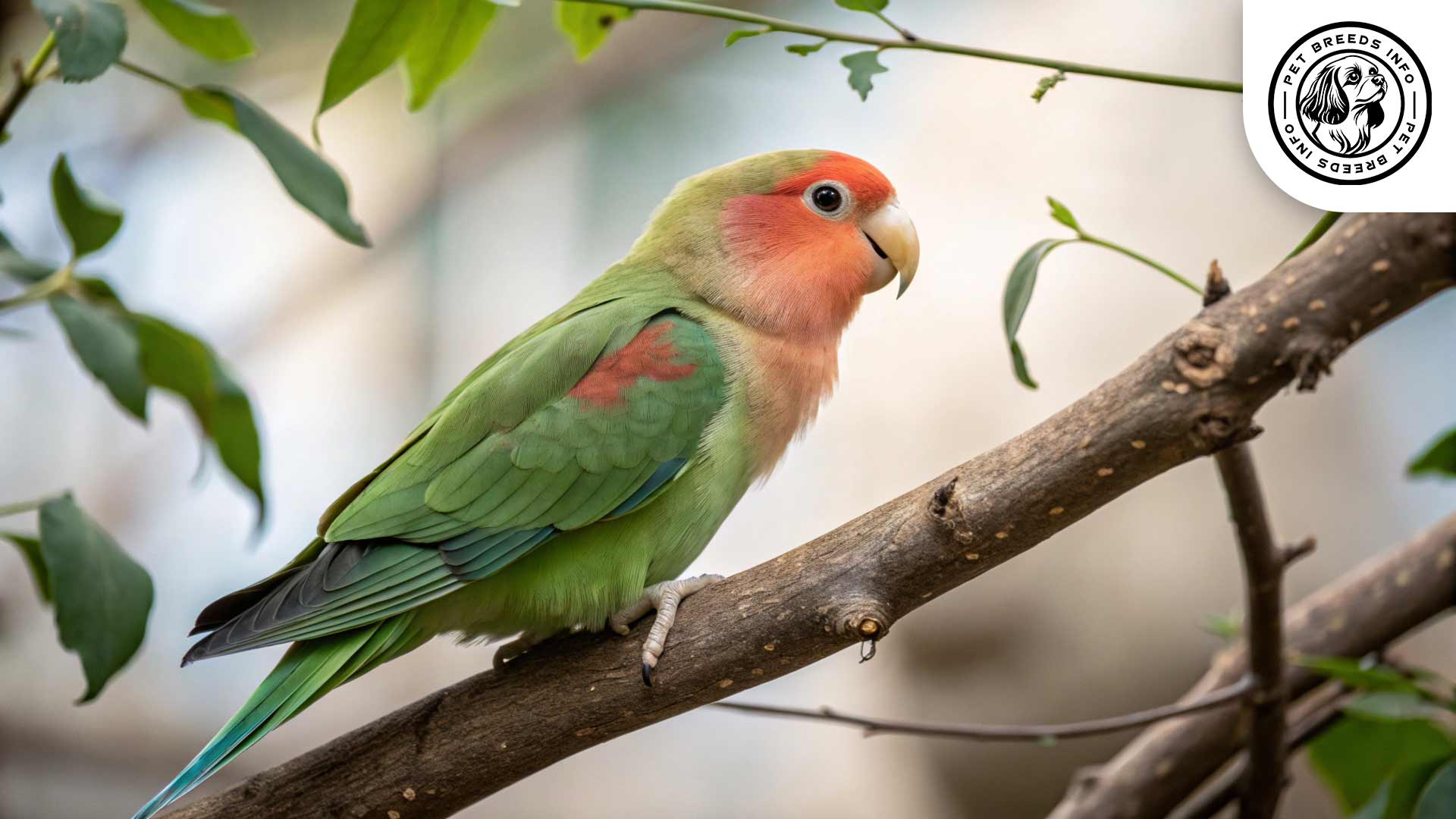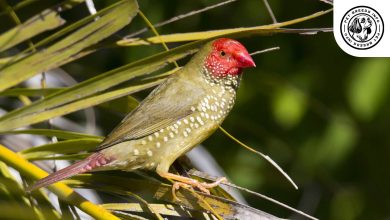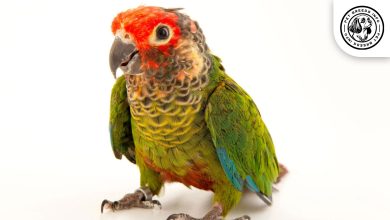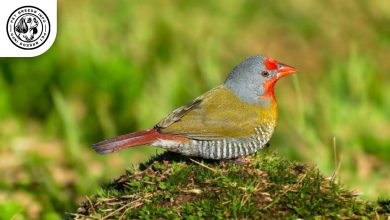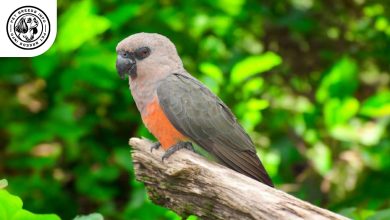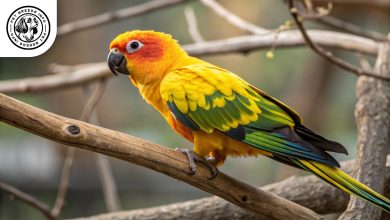Peach-faced Lovebird: Personality, Lifespan, Food & Care
General Introduction of the Breed
The Peach-faced Lovebird (Agapornis roseicollis), also known as the Rosy-faced Lovebird, is a small, vibrant parrot native to the arid regions of Southwestern Africa, including Namibia, Angola, and South Africa. This species belongs to the lovebird family, known for their strong pair bonds and affectionate nature. They were first classified in the early 19th century and have since become one of the most popular pet parrots worldwide.
Table of Contents
| Common Name | Peach-faced Lovebird, Rosy-faced Lovebird |
| Scientific Name | Agapornis roseicollis |
| Origin | Arid regions of Southwestern Africa (Namibia, Angola, South Africa) |
| Size | Approximately 6 inches (15 cm) in length |
| Lifespan | Up to 15 years in captivity (with proper care) |
| Talking Ability | Not explicitly mentioned in the text. While intelligent, lovebirds are generally not known for their extensive talking abilities. |
| Colors | Primarily green with a striking peach-colored face and throat. Various color mutations exist (lutino, pied, cinnamon, albino, etc.). |
| Noise Level | Not explicitly stated, but as energetic and social birds, they are likely to be vocal, especially when seeking attention or during play. |
| Social Behavior | Highly social, form strong pair bonds, affectionate with owners, enjoy human interaction, generally good with children (with gentle handling). |
Physical Characteristics
Peach-faced Lovebirds are small birds, averaging around 6 inches (15 cm) in length and weighing between 1.5 to 2 ounces (43 to 60 grams). They have a compact physique with a short, stocky build.
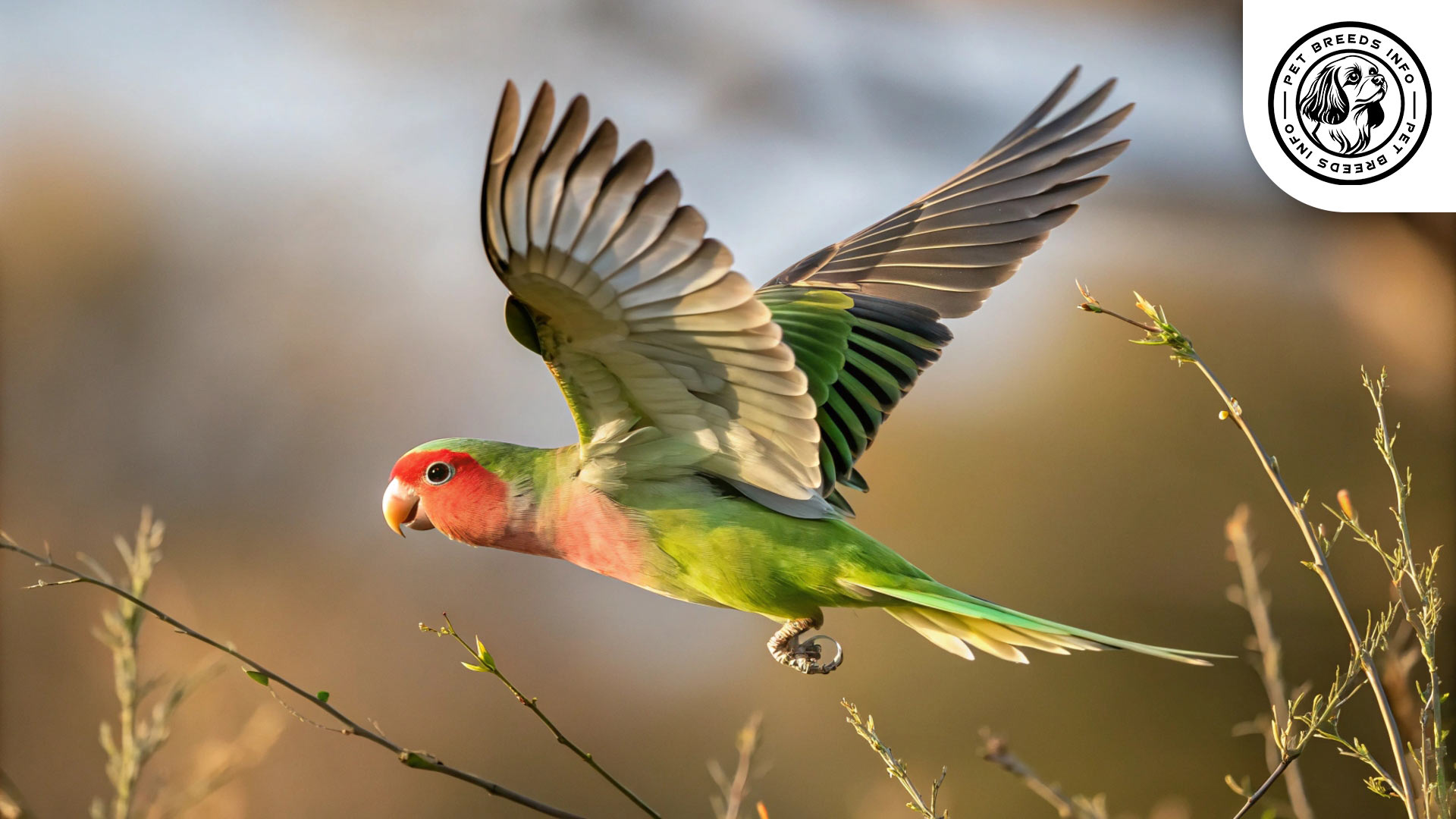
Their plumage is primarily green, with a striking peach-colored face and throat. Various color mutations exist, including lutino, pied, cinnamon, and albino variations.
Their eyes are round and dark, giving them an expressive appearance. Their beak is short and slightly hooked, usually pale ivory or yellow in color.
Their tail is short and rounded, while their legs are strong and well-adapted for perching and climbing.
Read More: Zebra Dove Bird
Personality and Temperament
Peach-faced Lovebirds are highly intelligent and curious, making them quick learners when it comes to training and social interaction.
They are very energetic and require plenty of stimulation through toys, playtime, and interaction with their owners.
They form deep bonds with their owners and can be very affectionate. However, if left alone for long periods, they may become distressed.
These birds enjoy human interaction and are generally good with children, though gentle handling is necessary to build trust.
They have a playful nature and love to explore their environment. They also enjoy engaging in activities such as foraging and interactive play.
They are sensitive to changes in their surroundings and can become stressed in noisy or unfamiliar environments.
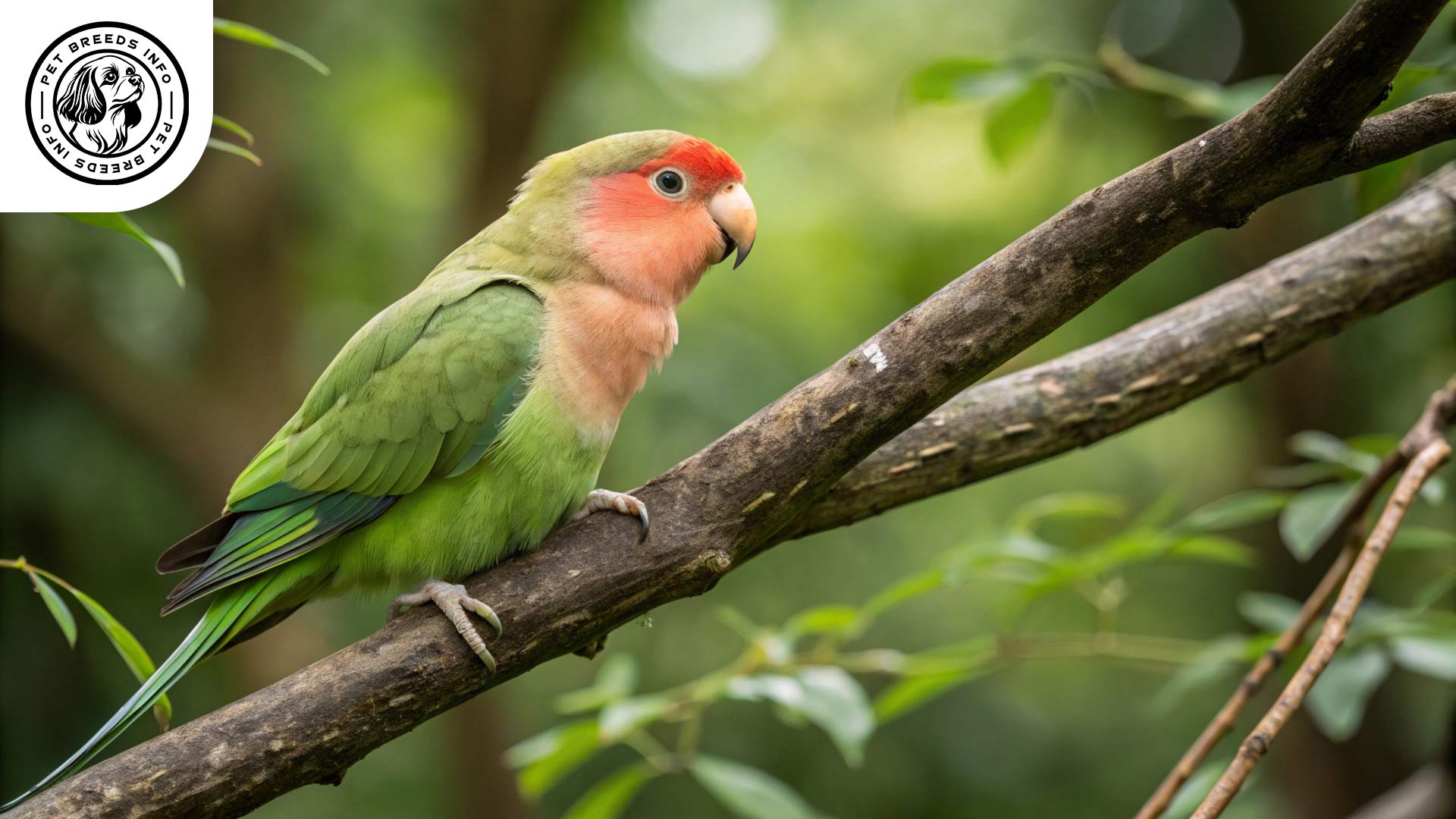
Care and Maintenance Requirements
Peach-faced Lovebirds require daily exercise and interaction to remain happy and healthy. They thrive in spacious cages with plenty of room to climb and play.
They are well-suited for apartment living but should have enough free-flight time outside the cage under supervision.
Grooming is minimal since they preen themselves. However, regular nail trims and occasional mist baths help maintain their feather condition.
They are sensitive to extreme temperatures, so they should be kept in a stable indoor environment with moderate humidity levels.
Regular cleaning of their cage is necessary to prevent bacterial buildup. Fresh food and water should be provided daily.
Diet and Nutrition
A balanced diet consists of high-quality pellet food supplemented with fresh vegetables, fruits, and occasional seeds.
They require a variety of foods to ensure proper nutrition. Dark leafy greens, carrots, apples, and berries are healthy choices.
Avoid feeding them chocolate, avocado, caffeine, onions, and sugary or salty foods, as these are toxic to birds.
Providing the right portion size is essential. A small bowl of pellets along with fresh foods twice daily is recommended.
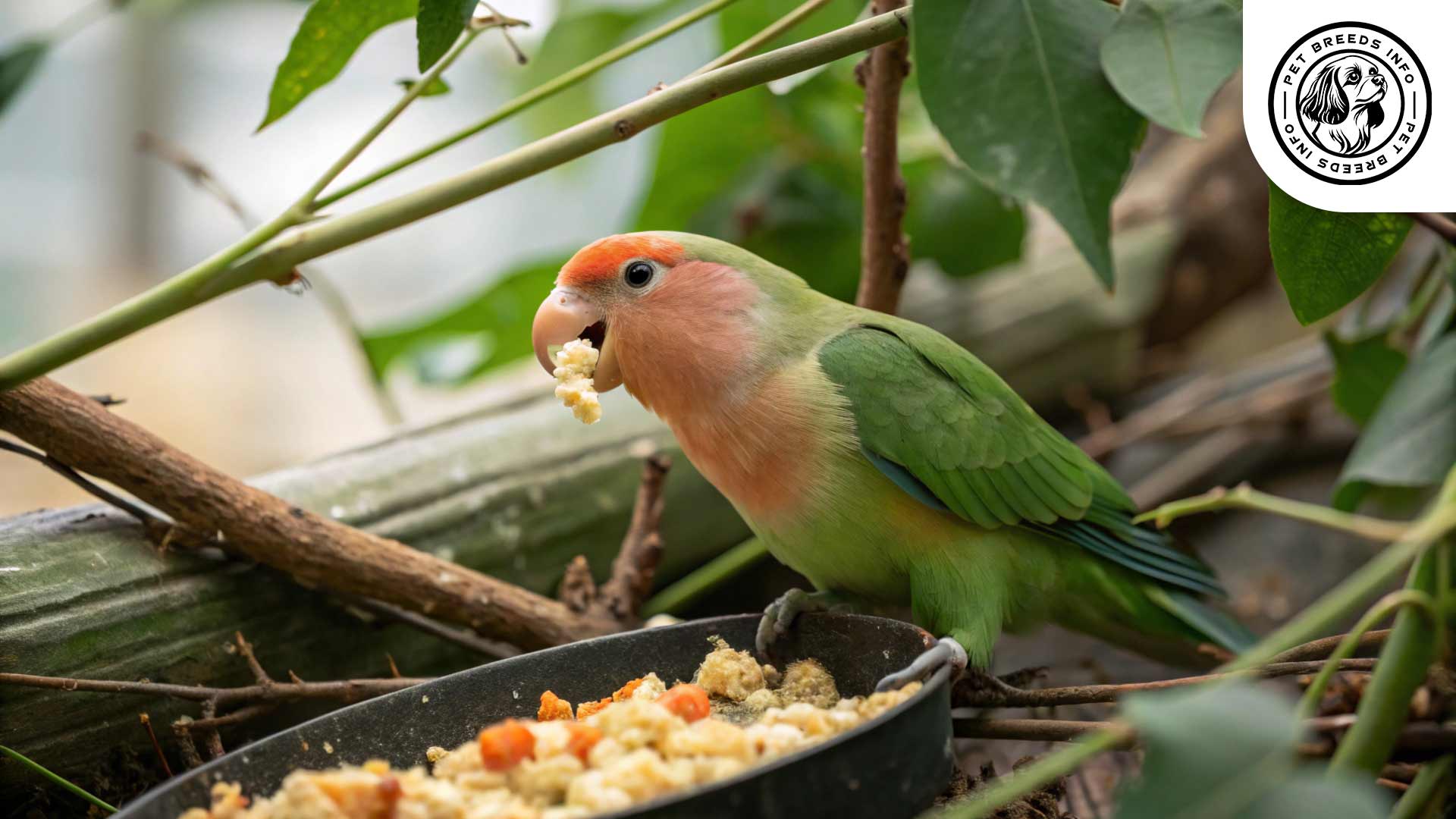
Health and Common Medical Issues
Peach-faced Lovebirds are generally hardy, but they can suffer from respiratory infections, feather plucking, and nutritional deficiencies if not properly cared for.
They are prone to bacterial and fungal infections if their cage is not kept clean.
With proper care, they can live up to 15 years in captivity.
Regular check-ups with an avian veterinarian help in early detection of health issues.
Read More: Yellow-faced Parrotlet Bird
Training and Behavior Management
They are intelligent birds capable of learning simple tricks and commands with positive reinforcement.
Training should begin early, using treats and praise as motivators.
Socialization with family members helps prevent aggression and fearfulness.
Avoid punishment-based training, as it can make them fearful and stressed.
Interaction with Other Animals and Humans
They generally get along well with humans, including children, but interaction should always be supervised.
They may not always get along with other birds, especially if not introduced properly.
They are best suited for individuals or families who can spend time interacting with them daily.
They have a strong bond with their owners and do not like prolonged solitude.
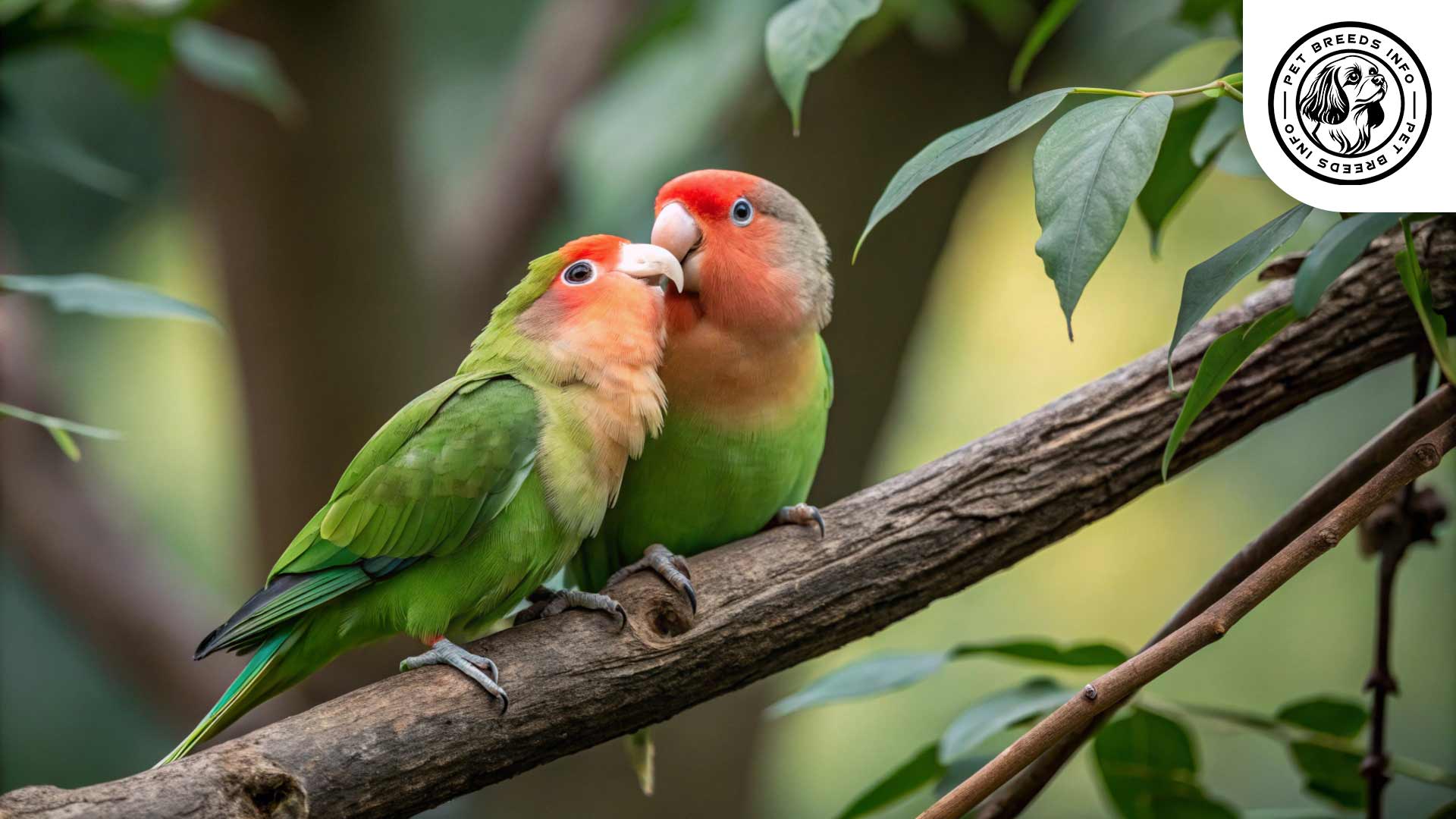
Price and Availability
The cost of a Peach-faced Lovebird ranges from $50 to $150, depending on the color mutation and breeder.
When purchasing one, it is important to choose a reputable breeder or consider adoption from a rescue organization.
Ensure the bird is healthy, alert, and active before making a purchase.
Conclusion and Final Thoughts
The Peach-faced Lovebird is an excellent pet for those who can dedicate time and attention to their care.
They thrive in homes where they receive daily interaction and mental stimulation.
Potential owners should consider their social nature and need for companionship before adopting one.
With proper care and attention, they make loving and entertaining companions for bird enthusiasts.
Read More: Gang-gang Cockatoo Bird
FAQ
How big do Peach-faced Lovebirds get?
They average around 6 inches (15 cm) in length.
Are Peach-faced Lovebirds good with children?
Yes, generally, but gentle handling is necessary to build trust.
What do Peach-faced Lovebirds eat?
A balanced diet of high-quality pellets, fresh vegetables, fruits, and occasional seeds.
How long do Peach-faced Lovebirds live?
With proper care, they can live up to 15 years in captivity.
Do Peach-faced Lovebirds need a lot of attention?
Yes, they are very social and require daily exercise and interaction to stay happy.
